
by Legalnaija | Apr 16, 2022 | Uncategorized
Have you heard of the phrase “poison pill”?
Well if you have not, you would have heard that Elon Musk wants to buy over twitter in what appears to be a hostile takeover. Elon can at best be described as an activist investor/shareholder in twitter.
An activist investor is an individual or group that buys a significant stake in a public company in order to influence how the company is run, oftentimes by obtaining seats on its board of directors or even out-rightly taking over the company like Elon is trying to do now.
You may not however know that twitter is poised to block that move with the poison pill technique.
So what is the poison pill technique (also known as a shareholder rights plan)?
It is a strategy sometimes employed by target companies in a take-over bid to reduce the attractiveness of their shares to the company intending the take-over. This is often done by enlarging the outstanding shares of a target company through a new issue of shares to its shareholders at a discount to the market price, thereby making the take-over more expensive to the company intending to take it over.
The general idea, is to frustrate an external takeover attempt by either making the company less desirable or by putting current shareholders at a higher point of power. Both goals are achieved by selling cheaper shares to existing shareholders, thus diluting the potential equity which an acquirer receives, and also providing more equity to existing shareholders.
HOW DOES THIS WORK?
The company makes provision to entitle existing shareholders to acquire shares of the company at a very substantial discount and allowing existing shareholders to consolidate their equity claim in the portion of the company that is not bought by the acquirer.
This right to purchase is given before the takeover or acquisition is finalized, and will often be triggered when the acquirer surpasses a certain ownership percentage threshold.
The purchase of discounted shares of the company then dilutes the acquirer’s equity, reducing the value received for the price paid by the acquirer.
This puts all shareholders almost at par when it comes to board votes because each shareholder now owns less of the overall company. The trick however is that existing shareholders (excluding the acquirer) will have effectively consolidated power due to the purchase of discounted shares and as a block defeat the majority of the acquirer.
When the option is exercised before the acquisition, it is referred to as a flip-in and where it is exercised after the acquisition it is referred to a flip-over.
In 2012 Netflix adopted this technique to fend off Karl Icahn from a hostile takeover as soon as Icahn acquired 10% stake in the company. They went on the defensive by adopting this approach and making the attempt much more expensive for Icahn.
EFFECTIVENESS
Poison pills can be very effective in frustrating a purchase but shouldn’t be the first line of defence. This is because the strategy is not fool-proof and may not always work, as it may not deter a determined acquirer especially one like Elon Musk in this instance. It may also weaken the company if deployed incorrectly.
This approach has not found increased expression in Nigeria but remains an option for companies seeking to ward off hostile takeovers by people who have substantial shareholding and intend to use their large investment in a company as a tool to takeover and control it.
CONCLUSION
Although the poison pill technique is a a measures that a company may implement to discourage a hostile takeover, they do not always mean that companies do not want to be acquired or merged. Sometimes they are used to force the acquirer to negotiate takeover terms more favorable for the target company.
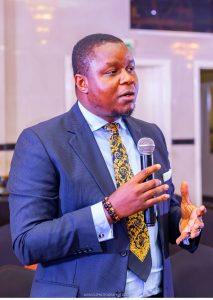 Omoruyi Edoigiawerie is a Business Lawyer and the Lead Partner at Edoigiawerie & Company LP, a full service law firm offering bespoke legal services with a focus on startups, established businesses and upscale private clientele. The content of his article is intended to provide a general guide on the subject matter. Specialist advice should be sought about specific circumstances. He can be reached by email at omoruyi@uyilaw.com.
Omoruyi Edoigiawerie is a Business Lawyer and the Lead Partner at Edoigiawerie & Company LP, a full service law firm offering bespoke legal services with a focus on startups, established businesses and upscale private clientele. The content of his article is intended to provide a general guide on the subject matter. Specialist advice should be sought about specific circumstances. He can be reached by email at omoruyi@uyilaw.com.
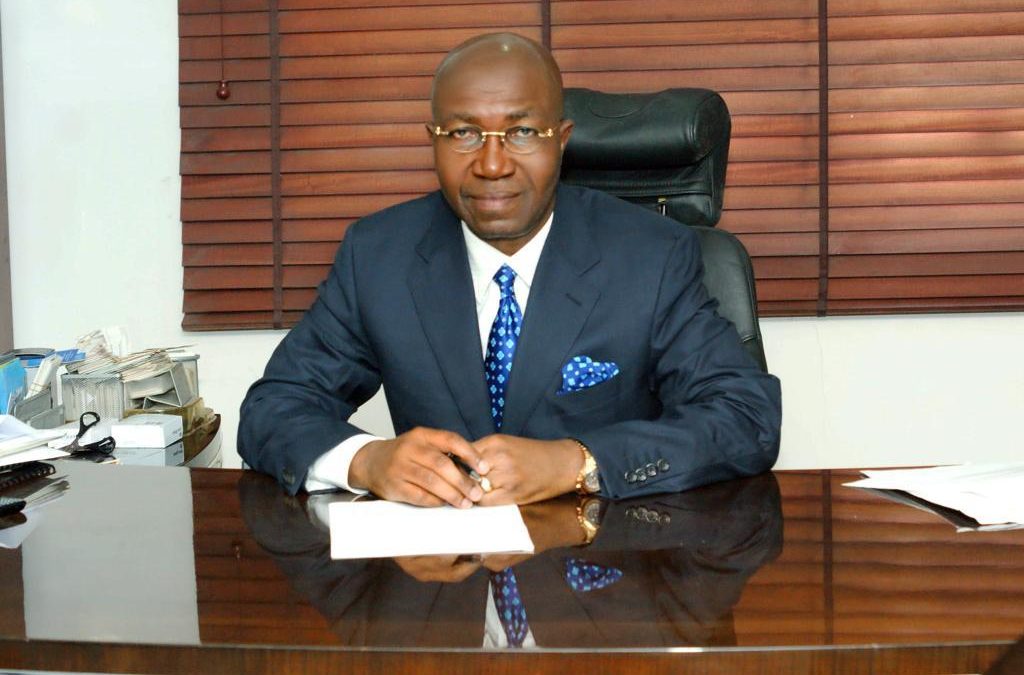
by Legalnaija | Mar 31, 2022 | Uncategorized
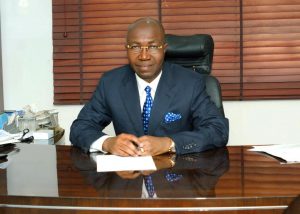
CHIEF WOLE OLANIPEKUN, OFR, SAN ASSUMES THE MANTLE OF LEADERSHIP AS THE 50TH CHAIRMAN OF THE BODY OF BENCHERS
Earlier today in Abuja, the Founder of NewCruse 92.7FM Radio Station and former President of the Nigerian Bar Association (NBA), the illustrious and highly cerebral Chief Wole Olanipekun, OFR, SAN, assumed the mantle of leadership, as the 50th Chairman of the Body of Benchers for a term of one year to pilot the affairs of the Body. The exceptional learned Silk and Life Bencher, having been elected as Vice-Chairman in March, 2021, took over from the remarkable Jurist and former Justice of the Supreme Court and Life Bencher, Hon. Justice Bode Rhodes-Vivour, CON, JSC. Also, the eminent and amiable Justice of the Supreme Court, Hon. Justice Mary Peter-Odili, CFR, JSC was elected today, as Vice-Chairman of the august Body.
Founded on 27th November, 1971, by sixteen professional and illustrious primogenitors, some of the eminent Legal Practitioners qua Jurists, who have mounted the saddle of leadership of the Body of Benchers as Chairmen include: the first indigenous Chief Justice of Nigeria, Hon. Justice Adetokunbo Ademola, GCFR; the sage Jurist and scholar, Hon. Justice Taslim Olawale Elias, GCON (the first Minister and Attorney-General of the Federation); the exceptional and outstanding Jurist in the person of Sir Danley Alexander, KBE; the cerebral and consummate Jurist, Hon. Justice Augustus Nnamani, SAN, JSC; former Chief Justice of Nigeria, Hon. Justice Mohammed Bello, GCON; former President of the NBA, in the person of the indefatigable O.C.J. Okocha, MFR, SAN etc.
In the course of reading his Acceptance Speech at the new edifice of the Body of Benchers in Abuja, Chief Wole Olanipekun, OFR, SAN, made reference to the Body of Benchers Regulations, particularly, paragraphs 3 (1), (2) and (3) of the Regulations, which provided for the establishment of the offices of the Chairman and Vice Chairman to be held for a term of one year (beginning in April of the one year and ending in March of the next) and upon the Chairman ceasing to be Chairman, the Vice-Chairman shall succeed him as Chairman for the next following year. In distilling the essence of the said paragraphs, Chief Olanipekun, OFR, SAN, in his speech stated as follows:
“I have deliberately referenced the above provisions of our Regulations so that all and sundry, particularly, Legal Practitioners, within and outside the fold of the Body of Benchers, as well as the uninitiated, will come to the understanding that since 27th November, 1971, when the Body of Benchers was inaugurated by our professional primogenitors (sixteen of them in number), the transition to either the office of the Vice-Chairman or Chairman has always been smooth, seamless, straightforward, rancour-free and unwrinkled. Here, we do not mount the soap box or campaign for elections. In fact, it is only the Vice-Chairman that is elected for a term of one year certain; after which, he or she automatically assumes the position of the Chairman at the expiration of the tenure of the incumbent Chairman. It is as predictable, set-in stone and well organised as the ascendency to the ancient Olubadan throne in Ibadan, Oyo State, South-West, Nigeria. But even at that, unlike the Olubadan title where the State Governor still has to give approval and present the staff of office to the next Chief in line to the departed Olubadan, here at the Body of Benchers, the Vice-Chairman automatically assumes office upon completion of the one-year term of the serving Chairman. By the grace of God, the Jurist who assumes office as my Vice-Chairman today, will succeed me as Chairman, come end of March, 2023. That is our tradition. That is our goodly heritage…”
Pledging to continue to give his all to the services of the Body of Benchers as Chairman, Chief Wole Olanipekun, OFR, SAN, informed members of the august Body that he will be calling upon all members for their cooperation, understanding, assistance, advice and counsel in order to revamp the legal profession posited thus:
“I pledge to continue to give my all to the services of the Body of Benchers as Chairman for the next year and, in doing so, I will be calling upon you all for your cooperation, understanding, assistance, advice and counsel. Nobody knows it all, and no man born of woman can boast of monopoly of wisdom. I am not insular. In whatever position I found myself, I have always striven to represent our noble profession as an ambassador and exemplar, displaying the learning, good character and virtues which the law profession is reputed for, to the admiration of the non-legal communities…”
Furthermore, the new Chairman of the Body of Benchers in his speech called upon the leaders of the legal profession present at the occasion to do all within their power to rejig, redefine and reorientate the legal profession by stating thus:
“As leaders of the legal profession in our respective rights who, in the wisdom of the law, id est, the Legal Practitioners Act, has aggregated us from our different sectors of the profession, whether as Chief Judges of High Courts, Attorneys-General of all the States and the Federation, President of the Court of Appeal, as well as all the Presiding Justices of the various Divisions of the Appellate Court, serving Chief Justice of Nigeria and other Justices of the Supreme Court, past Presidents of the NBA, representatives of the NBA, drawn from all sections of the Association, Chairman of the Judiciary Committee in the Senate and his counterpart in the House of Representatives et al, it behoves us to rejig, redefine and reorientate our profession in order to restore its cherished nobility and glory. We must not lose sight of the unpleasant happenings around us, whether from the Bar and Bench. Succinctly surmised, our profession is under aggression and attack, both from within and without. These are not the best of times for the legal profession in Nigeria. But let us be encouraged by the illuminating words of Criss Jami in his recently published book (2015) titled Killosophy, where he enthused that “To seek greatness is the righteous vengeance” (page 102). Therefore, it is the bounden duty of the congregation of these great men and women of distinction, constituting the Body of Benchers, to work for the greatness and renaissance of our esteemed profession. In doing so as well, we may have to crack some glass ceilings”
While appreciating members of the Body of Benchers for the confidence reposed in him as Vice-Chairman for the past one year, and the opportunity to transit to the position of Chairman, he also, on behalf of the Body, expressed his heartfelt gratitude to the outgoing Chairman, Hon. Justice Olabode Rhodes-Vivour, CON, JSC (Rtd.) for discharging his duties as Chairman creditably well.

by Legalnaija | Mar 8, 2022 | Uncategorized
The tenancy agreement is a contract between a Tenant and a landlord. It may be written or verbal. The tenancy agreement gives certain rights to both parties and sets out both their obligations. For example, your right to occupy the accommodation and your landlord’s right to receive rent for letting the accommodation.
Usually Tenancy Agreements contain the following;
- Tenant’s and Landlord’s name and the address of the property which is being let
- the date the tenancy began
- the duration of the tenancy – if it’s a fixed term tenancy, this means the date when the fixed term ends
- the amount of rent payable, how often and when it should be paid and how often and when it can be increased
- what the rent includes – for example, utilities, service charge or bills.
- whether your landlord will provide any services
- the notice period you and your landlord need to give to end the tenancy – there are statutory rules about how much notice to give and this will depend on the type of tenancy and why it’s ending
The agreement may also contain details of obligations to repair the property, Landlord’s obligations to repair basic rights under the law.
On Legalnaija, you can create and download your own Tenancy Agreement in less than 5 minutes and for a small sum. All you need do is;
- Visit https://app.legalnaija.com/shop/templates
- Select Tenancy Agreement
- Answer the questions
- Make payment
- Download your agreement
Through this innovation, we have made getting Tenancy Agreements, easier, cheaper and faster. Most especially all our Templates are drafted by expert lawyers.
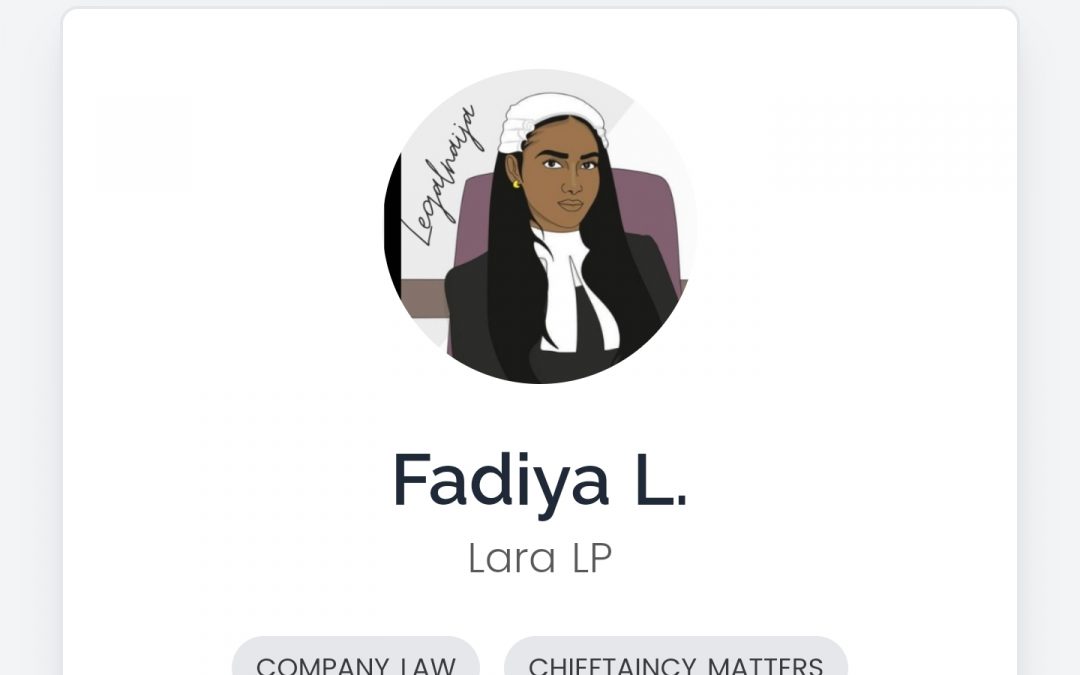
by Legalnaija | Mar 8, 2022 | Uncategorized
According to statistics, there are about 21 million legal problems that come up in Nigeria every year. This means that daily, there are literally thousands of Nigerians who require legal services. Many of these citizens however do not have enough access to legal professionals and this is where the Legalnaija Lawyers Directory comes in.
For Clients
Finding the right lawyer for you may seem like an overwhelming task, but it doesn’t have to be if you know where to look. Before you begin your search, you must first know that there are different type of lawyers, usually depending on their area of practice, so it’s important that you know what area of law you need legal advice on. These areas may include business registration, tenancy, family and probate or even criminal proceedings. After you have decided on what area of law you need a lawyer for, it becomes easier to narrow your focus and begin your search. There are quite a number of ways to find a lawyer, examples include through talking to your friends and contact, carrying out an online search, or looking though a Lawyers Directory. You may also consider looking around your neighborhood as you may spot a law office close to you.
There are also other features that you may need in your ideal lawyer asides area of practice, which is location and sometimes gender. You may need a lawyer in a particular city or state or even want to find a lawyer based on gender. For instance, some parties in divorce proceedings sometimes want a lawyer of the same gender as them. This is due to their belief that such lawyer may understand them better than a lawyer of the opposite gender.
If you are however looking for a lawyer based on the above mentioned criteria, there is an online directory for Nigerian Lawyers that can be quite helpful. The Legalnaija online lawyers directory allows you find a lawyer through a location, area of practice or gender. The Legalnaija online directory also allows you search for lawyers in any state or community in Nigeria. To find a lawyer in Nigeria now, you can simply find one on the Legalnaija Lawyers Directory.

CLICK TO ORDER
For Lawyers
The Legalnaija Lawyers Directory allows lawyers grow their practice, attract more and talent clients and establish their practices as though leaders in their area of practice. Subscribing to the Directory is quite affordable and there are very easy steps for any lawyer who wants to get registered.
To take advantage of these benefits, simply subscribe to our Lawyers Directory by;
- Log on to https://app.legalnaija.com/signup
- Create an account
- Fill in your details, attach any relevant documents and submit for verification (Note that you will not be listed if you do not complete your profile and submit the requested documents for verification).
- You will be notified of your approval and listing via email.
Note that subscription is 1000 Naira only monthly, and you have the opportunity to upgrade and become top listed in your location as well. More exciting is that you get a 30 day free trial when you sign up. If you have signed up and are also yet to complete your profile and get verified, you should do so now.
For more information, contact support at hello@legalnaija.com or via @Legalnaija across your social media platforms.
@Legalnaija
www.legalnaija.com
WhatsApp – 09029755663

by Legalnaija | Mar 8, 2022 | Uncategorized
INTRODUCTION
Space law according to Britannica is the body of regulations in international law that governs conduct in and related to areas of space above Earth’s lower atmosphere. This law addresses a variety of matters, such as, for example, the preservation of the space and Earth environment, liability for damages caused by space objects, the settlement of disputes, the rescue of astronauts, the sharing of information about potential dangers in outer space, the use of space-related technologies, and international cooperation. Space exploration began in October 1957 when Russia launched its unmanned satellite. The evolution of space law began with U.S. President Dwight D. Eisenhower’s introduction of the concept into the United Nations in 1957, in connection with disarmament negotiations. Following the successful launchings of the Soviet satellite Sputnik 1 in 1957 and the U.S. satellite Explorer 1 in 1958, both the United States and the U.S.S.R. took an active interest in the development of international space policy.
LEGAL STATUS OF AN OUTER SPACE
At the beginning of Space Age in 1957, discussions began in the State community, within the UN, precisely on the legal status of this new issue. Several legal concepts of traditional public international law could be applied to a newly ‘discovered’ area. At final, the approach, which was chosen by the State community, was quite different from but comparable with the regime established for the high sea, where no State sovereignty is accepted. An outer Space was declared as a res communis which is not subject to the sovereignty of any State, and where States are bound to refrain themselves from any acts that can adversely affect the use of an outer space by the other states.
LEGAL REGULATIONS OF ACTIVITIES IN SPACE
On 4 October 1957, the Space Age actually began when the world’s first artificial satellite, SPUTNIK-1 (`travelling companion’) was launched by the Union of Soviet Socialist Republics (USSR). Subsequently, other suggestions have also been made in relevance to the matter, which, if not juridical, undoubtedly possess the merits of expediency, what does it mean?
1) Quite a number of interests of the States in an exploration and use of outer space, for instance, considerations on policy and strategy in regards to science and economics. This is so in order to avoid confusion and conflicts as well as to enable some orderly procedures on special required rules.
2) Outlining the basic principles for further evolution in law with a tendency to allow the situation to get out of hand and then crystallize in various shape and forms, thus a detriment to a cohesion and an uniformity. While the circumstances surrounding the proper place for space law within the context of international law have been in a debate, a prompt search for analogies and models will be in the older structures within that sphere.
LEGAL FEASIBILITY, WHAT IS?
Legal feasibility is the study to know if the proposed project conform the legal and ethical requirements. It is important that the project or business is following the requirements needed to start a business or a project including business licenses, certificates, copyrights, business insurance, tax number, etc. There are some things to consider in legal feasibility study including ethical issues and some social issues. These issues are the privacy, nepotism, and accountability. It determines whether the proposed system conflicts with legal requirements, e.g., a data processing system must comply with the local data protection regulations and if the proposed venture is acceptable in accordance to the laws of the land.
RATIONALE OF THE INTELLECTUAL PROPERTY
Intellectual property (IP) according to WIPO refers to creations of the mind, such as inventions; literary and artistic works; designs; and symbols, names and images used in commerce. IP is protected in law by, for example, patents, copyright and trademarks,
- I) Copyrights is a legal term used to portray and examine the rights that creators have over their literary and artistic works. Works covered by copyright range from books, music, paintings, sculpture and films, to computer programs, databases, advertisements, maps and technical drawings, etc.
- II) A patent is an exclusive right granted for an invention. Looking at it from a wider view, a patent provides the patent owner with the right to decide how or whether the invention can be used by others.
III) A trademark is a sign capable of distinguishing the goods or services of one enterprise from those of other enterprises. These are the major ranges if intellectual property, amongst others. By striking the right balance between the interests of innovators and the wider public interest, the IP system aims to foster an environment in which creativity and innovation can flourish.
INTELLECTUAL PROPERTY IN SPACE
As is evident, no intellectual property rights can be claimed yet in Space as such as it is seen historically seen as a common heritage of all of mankind and furthermore the requisites laid down in the OST which mandates the sharing of the benefits of what is derived from Space, individual rights are far from being claimed. It is only on an object that is launched into space can a person/nation have exclusive rights over. Article VIII of the Outer Space Treaty governs this aspect stating that the launching State has to register the object and in consequence of it, will have jurisdiction over it. In cases where there are two or more launching states, the decision is left to the parties to decide and determine which one of them should have jurisdiction and right over the object. Though the invention is registered and protected under the laws of the nation it is manufactured in, the law which is to govern the activities of such an invention is still a big blank spot.
Today, space technology has become increasingly advanced and developments in this field have resulted in the formation of laws governing outer space and intellectual property rights. Despite the fact that space technology has long been one of the most advanced technical areas in the world, it is only in recent years that intellectual property issues have begun to arise in connection with extraterrestrial activities. Some of the reasons for this are that space activities are increasingly shifting from being state-owned activities to becoming private and commercial activities (Space Exploration Technologies Corp, popularly known as Space X, founded by Elon Musk in the USA in 2002, is a great example). Many times creativity result in intangible or intellectual property, which includes patents, copyrights, trademarks and trade secrets. Although the nationa laws and international agreements providing for intellectual property protection on earth are well-known and unresolved areas are fairly well-defined but in space, intellectual property protection is subject to greater unknowns. The technology is often novel and the law at best developing.
Further, an increasing number of space activities are operated under international cooperation schemes, which depend on a uniform and reliable international legal framework. In developing and commercializing any new technology on earth or in space, protection of one’s creativity is vital to success. The international law of outer space is essentially based on the interpretation and implementation of the United Nations’ space treaties. These treaties primarily address governmental activities in space but do not specifically address intellectual property protection, which is very important for private sector to get commercially involved in space activities. The recognition of the rights and responsibilities of non-governmental entities in space will evolve with increasing activity by such entities in the space environment. It determines whether the proposed system conflicts with legal requirements, e.g, a data processing system must comply with the local data protection regulations and if the proposed venture is acceptable in accordance to the laws of the land. Outer space (often referred to as space) consists of a region of universe beyond the upper layers of the atmosphere of Earth. The term is commonly used to distinguish it from airspace and territorial locations. However, the Fédération Aéronautique Internationale has established the Kármán line, at an altitude of about 100 km (~62 mi), to distinguish the boundary separating the working definitions for aeronautics and astronautics.1 Unlike earlier times, space research is not restricted to the government organisations, but has extended to the private players as well. However, the involvement of non-governmental agencies is not in absence of ascertaining any legal liability; Article VI of the Outer Space Treaty, 1967, provides that States shall be responsible internationally for national activities in outer space carried out by governmental agencies or by non-governmental agencies and that the State shall authorize the activities of the non-governmental agencies.
As prescribed in Articles I and II of the Treaty on Principles Governing the Activities of States in the Exploration and Use of Outer Space, including the Moon and Other Celestial Bodies (Outer Space Treaty), the exploration and use of outer space for the benefit of mankind and the non-appropriation of outer space by any nation are fundamental principles under international space law. While IP and innovation are of paramount importance for the exploration of outer space and the further development of science and technology, questions have been raised as to whether the protection and enforcement of intellectual property rights may conflict with these fundamental principles.
SOLUTIONS TO CONFLICT BETWEEN INTELLECTUAL PROPERTY LAWS AND SPACE LAW
There should be a harmony between the Space laws and the Intellectual property laws. The conflicts between intellectual property and space law regime could be resolved by enacting harmonized system of laws. There are lack of standard rights and liabilities of the IP protection in the space activities. Only by the intellectual property rights the companies can seek protection that adversely expands the commercialization of new inventions. Now there is a need of necessary amendments to the existing space law. Hence, this article discusses about the exercising international and harmonious legal framework of IPR would facilitate maximum collective utilization of public and private resources in the area of space technology Thus, now it is very much necessary to establish and develop a unitary/uniform and harmonised IP protection regime for space for the interest of the developing countries. Outerspace add many new legal dimensions to the IP rights such as application of terrestrial based national laws in outer space for acquisition and enforcement of rights, ownership of rights and entitlements for use in joint activities, settlement of disputes and compliance to international obligations. Some developments are taking place at national, regional and multinational levels, to extend the applicability of terrestrial based IP laws in the outer space. Only USA amended its patent laws extending its territorial jurisdiction to space. Relevant provisions for the applicability of domestic IPR law to Space Activities exist only in US law today, found within the US Space Bill and the NASA act. The US Space Bill extends the applicability of US patent law into OuterSpace. The NASA act includes a provision to consider a “space object” as a vehicle. Though the regime of intellectual property is governed by national laws, international entities like the World Intellectual Property Organisation (WIPO) and the Agreement on Trade-Related Aspects of Intellectual Property Rights (TRIPS) have succeeded in harmonizing the IP laws to some extent, worldwide. However, such a harmonization is not sufficient for extending such protection to space related activities and inventions, thus, the need of the hour is to establish a uniform legislative regime governing IP laws in space so that even the developing countries are able to benefit from their creations rather than being overshadowed by the developed ones. There is a wide scope for several new dimensions pertaining to IP rights that can be opened in the Outer space, such as, application of territory based national laws in outer space for enforcement of rights, entitlement and ownership in case of joint activities, compliance with international obligations, etc. In addition to a uniform legal regime, a standard enforcement mechanism, such as that of International Arbitration, also has to be established to hear and decide disputes arising out of IPR in outer space.
REFERENCES
http://www.lawjournals.org/archives/2020/vol6/issue1/6-1-64
https://room.eu.com/review/the-protection-of-intellectual-property-rights-in-outer-space-activities
https://www.unoosa.org/oosa/en/ourwork/spacelaw/index.html#:~:text=Space%20law%20can%20be%20described,and%20regulations%20of%20international%20organizations.
https://asialaw.tripod.com/articles/ipspacenoichim.html
https://www.wipo.int/aboutip/en/#:~:text=Intellectual%20property%20(IP)%20refers%20to,and%20images%20used%20in%20commerce.
https://intellectual-property-helpdesk.ec.europa.eu/news-events/news/ip-and-space-activities-2021-04-29_en
https://www.mondaq.com/india/trademark/762020/intellectual-property-law-and-the-outer-space-a-promising-future-ahead#:~:text=Intellectual%20Property%20Rights%20in%20Space,territorial%20boundaries%2C%20in%20the%20Space.
.brihttps://www.britannica.com/topic/space-law
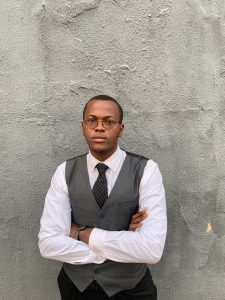 This painstaking research on intellectual property protection in space was carried out by Stephen Ifeanyichukwu Fortune. Ifeanyi is a law student at the faculty of law, University of Nigeria, Enugu Campus. He has key intrests in IP law, Maritime law, Tax law and Space law. He is an asute researcher who has conducted various researches. He accepts educational criticisms as regards his conducted researches, and you can reach out to him through his email address frezzybest@gmail.com
This painstaking research on intellectual property protection in space was carried out by Stephen Ifeanyichukwu Fortune. Ifeanyi is a law student at the faculty of law, University of Nigeria, Enugu Campus. He has key intrests in IP law, Maritime law, Tax law and Space law. He is an asute researcher who has conducted various researches. He accepts educational criticisms as regards his conducted researches, and you can reach out to him through his email address frezzybest@gmail.com
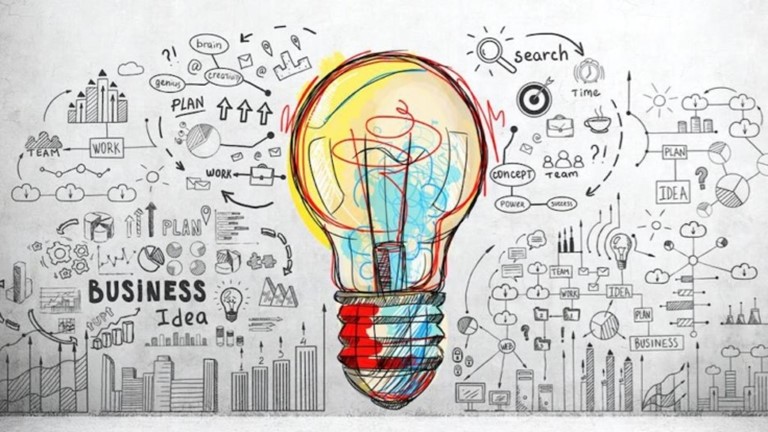
by Legalnaija | Mar 2, 2022 | Uncategorized
Lawyers working within the “tech space” these days are quick to exclusively introduce themselves as “Tech Lawyers.” As catchy and interesting as the title appears, its multi-faceted dimension is often ignored or confused for the creation of a new practice area or a specie of new breed of lawyers.
Surprisingly, this often-bandied contemporary appellation has not enjoyed sufficient analytical (and even academic) attention in spite of its dynamic and robust ramifications. Consequently, when ‘tech law’ is discussed, there is an undue usual fixation on legal services provided on issues concerning robotics, machines and AI at the expense of other areas of the law. This is rather contrary to meaning of technology itself which simply connotes ‘an easier way of achieving certain tasks’.
What is Tech Law?
An inquisition into what Tech Lawyers do must logically commence with an understanding of what ‘tech law’ is. Whether one refers to it as ‘tech law’ or ‘technology law’, its catchment areas are unimaginable wider than its connotative use especially among a certain generation of creative lawyers.
The word ‘technology’ itself is derived from “Techre” – a Greek word which means “art.” Professor A. Zvorikine of the U.S.S.R Academy of Sciences Institute of Philosophy notes that, technology has been defined as the ‘aggregate of techniques diverted towards the attainment of some purpose; specifically, the aggregate of techniques diverted against the forces of nature and towards the modification of materials’ (See A. Zvorikine, ‘Ideas of Technology. Technology and Culture, 443-458).
The erudite professor however observed that the definition as offered by other scholars does not properly capture the material and organic aspect of technology, hence he defines it as “the means of work, the means of human activity developing within a system of social production and social life.”
From the foregoing definitions of technology, then tech law can be simply defined as the body of laws that regulates the deployment of technology. In other words, tech law is the branch of law that regulated the means with which human activities develop within a system. This practice area governs both private and public deployment of technology for certain objectives.
Technology law is (in)explicably wide and complex as it accommodates several other areas of the law to wit; privacy and data protection, information communication technology (ICT), cybercrime, cyber law, artificial intelligence (AI), consumer protection, cyber security, intellectual property, digital rights, digital law, information technology law, fintech, private equity, venture capital, private equity, real estate contracts, contractual transactions, commercial transactions, entertainment, digital assets, cryptocurrency, patent, software licensing, mergers and acquisition, etc the list is open-ended.
What do Tech Lawyers do?
Since we already have an idea of the ambit of tech law, a simplistic and direct answer to what tech lawyers do, would be that: tech lawyers provide legal support/services to technology-related transactions or disputes.
Because of the complex nature of tech law, most commentators are understandably fixated on information technology divide of tech law, hence various commentators on what tech lawyers do have approached the issue from a rather narrow perspective. For example, Angus Finnegan (a partner who heads the International Technology and Telecom group in Reed Smith LLP- a global Law Firm head quartered in United States), argue that tech lawyers assist clients with solving ‘complex technology matters such as software licensing arguments and telecoms contracts? (See ‘Technology law: area of practice’ accessible at <https://targetjobs.co.uk/careers-advice/law/technology-law-area-practice>)
However, Katherine Bishop (another American lawyer) agrees that, from the definition of tech law, tech lawyers function across the broad range of practice area covered by technology law. She argues that a tech lawyer could even function in a financial company advising in regulatory compliance or externally revising the regulatory or contractual implications of technology solutions. Ultimately, she concludes that any lawyer who has advised a client on privacy policy/notice, intellectual property, fintech, even employment contracts is a tech lawyers. Bishop’s position quite rightly captures the organic nature of technology as the means of human productivity within a system. (See ‘What does a tech lawyer do?’ accessible at < https://attorneyatlawmagazine.com/what-does-a-tech-lawyer-do#:~:text=A%20tech%20lawyer%20can%20help,clients%20on%20employee%20classification%20issues.>)
In another rather restrictive article titled ‘The role of a technology lawyer’, Nicholas A. Kees notes that, any lawyer who provides services in relation to protection of ideas, productive and marketing of same, qualifies as a tech lawyer. He recognizes the ‘major’ areas of tech law as intellectual property, competition law, communications and privacy. (accessible at < https://www.gklaw.com/Resources/Documents/KeesEdit3AInsidetheMindsChapterforAspatoreBooks.pdf?)
Interestingly, in June 2021 Bloomberg conducted a survey on ‘Who are tech lawyers? (accessible at < https://news.bloomberglaw.com/bloomberg-law-analysis/analysis-who-are-tech-lawyers-we-asked-them-directly>). The survey did not only reveal that tech law spans almost if not all the law practice areas there is, but that majority of lawyers who have drafted or reviewed (technology-related) contracts would ascribe that appellation to themselves. The survey further revealed that, the regular technology-related matters are privacy, intellectual property, mergers and acquisition, manufacturing and supply agreements, litigation and settlement, employment matters, corporate law matters etc.
Conclusion
From the all-encompassing definition of technology law to the versatility of tech lawyers, it appears all lawyers would have, at one point or another, acted as tech lawyers for their clients. Hence, in my opinion, any lawyer who has drafted or reviewed a contract at any time for his/her career qualifies as a tech lawyer irrespective of the subject matter provided is simplifies the client’s task. Litigation lawyers on the other hand also qualify as tech lawyers since litigation is a pot pouri of many practice areas.
It must be understood at all times that, technology law begins with contracts, hence every lawyer who drafts or reviews a contractual document plays the role of a tech lawyer. Kevin Davis (Professor of Business Law, New York University, school of Law) succinctly put it that:
“If technology means ‘useful knowledge about how to produce things at low cost’, then contracts should qualify. Just as mechanical technologies are embodied in blueprints, technologies of contracting are embodied in contractual documents that serve as blueprint for collaborations.’ (See Kevin E. Davis, ‘Contracts as technology’ (2013) 88(83) New York University Law Review, 83)
Conclusively, if tech law is not exclusive to any practice area, then the description of tech lawyer is not necessarily a separate garment worn by any lawyer acting within the precincts of some limited practice areas erroneously contemplated as constituting technology law. The definition of tech law is too wide and flexible for the exclusive preserve of a sect of lawyers who provide professional services in a hand-picked practice areas.

by Legalnaija | Feb 25, 2022 | Uncategorized
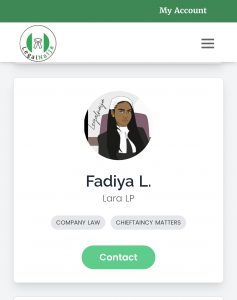
Nigeria has 21 million legal problems each year.
According to the 2018 Justice Needs and Satisfaction report, Nigerians encounter over 57,000 legal problems daily.
Everyday, at Legalnaija we help Nigerians resolve some of these problems by connecting them with expert lawyers or by providing them with information. By doing this, we are solving the problem of access to justice in Nigeria because we believe that a society grounded on the Rule of Law will definitely thrive and succeed.
If you are a lawyer, we will like you to join us in reviving our legal system by assisting citizens in protecting their rights, while also advancing your legal career and attracting new clients to your business. Excitingly, our Directory allows users filter their search for a lawyer via the Lawyer’s location, area of practice and gender.
If interested in this amazing opportunity for personal and national development, kindly ensure you are registered and have a valid subscription on the Lawyers Directory. Subscription is 1,000 Naira for 30 days; 5000 Naira for 6 months, and 10,000 Naira for 1 year.
Kindly note that if you do not have a valid subscription, we shall not be able to refer any briefs to you and clients won’t be able to find you.
If you are having any problem with your registration or subscription or if you want us to activate your subscription, thereby saving you the time, please text the word “Register” or “Subscribe” to 09029755663, or send a mail to hello@legalnaija.com
Remember, we are rooting for you.
Legalnaija Team

by Legalnaija | Feb 25, 2022 | Uncategorized

A lot of business is conducted during unofficial hours and weekends. While enjoying TGIF with friends and partners or having a chat, lots of deals worth billions are being struck over handshakes and champagne toasts.
The problem however is that you always agree to finalise the paper work later on which sometimes can pull the brakes on your business idea and slow things down a lot.
What if you could change that?
What if you could get your contracts and agreements customized to your specifics before you even finish the toast?
On www.legalnaija.com, you can get your legal agreements for a whole lot cheaper, and in less than 5 minutes. Thereby saving you money and keeping the business momentum on full speed. Some of the available Templates include customizable;
1. Contract of Employment
2. Power of Attorney
3. Sales Agreement
4. Licensing Agreement
5. Non – Disclosure Agreements
6. Loan Guaranty Agreement
7. Loan Agreement
8. Uber Commercial Transport Agreement
9. Tenancy Agreement
10. Affidavits and lots more
To customize an Agreement, simply;
1. Visit www.legalnaija.com
2. Select “Draft An Agreement” from the menu list.
3. Choose the Agreement template you need.
4. Answer few questions about your document.
5. Make payment and receive the Agreement in your email immediately.
Our smart contract templates is revolutionizing the way individuals and businesses engage with legal, and this powerful tool is now in your hands.
Are you going to empower yourself and your business?
Legalnaija Team
www.legalnaija.com

by Legalnaija | Feb 24, 2022 | Uncategorized

Do you drive a Uber or Bolt (Taxify) or do you own the car being used for a Uber or Bolt service, If yes, do you have a Commercial Driver Agreement?
According to statistics, Uber Nigeria, currently has 9,000 active driver-partners and no fewer than 267,000 monthly rider. This means there a lot of people in the business, and you may already be a party or thinking of getting into the business yourself.
If you are going into the business, especially if you are going in as a Driver of the Vehicle Owner, it is important have an agreement. Such an agreement will help protect both interests of the driver and car owner.
A number of clauses that should be provided for in your agreement include –
- Properly identifying the Vehicle
- Stating the duration of the agreement
- Responsibility for the maintenance and repairs of the vehicle.
- Insurance
- Storage of the vehicle
- Obligations of the parties
- Payment schedules
- Driver Guarantor
- Breach & Termination of the agreement
How To Get An Agreement
If you want to get an agreement between a Driver and Vehicle Owner, you can get one in less than 5 minutes on Legalnaija.
Instructions on how to get an Agreement on Legalnaija
- Log on to Legalnaija
- Select the Uber Commercial Vehicle Agreement from the lists of Templates
- Answer the questionnaire
- Make payment
- Receive your Agreement in your Email.
- Print and sign
- Go on and do business.
Please note that this information is provided for general informational purposes only and is not intended to be legal advice. No lawyer-client relationship is formed nor should any such relationship be implied. It is not intended to substitute for the advice of a qualified lawyer. If you require legal advice, please consult with a qualified lawyer.
@Legalnaija
www.legalnaija.com
hello@legalnaija.com

by Legalnaija | Feb 24, 2022 | Uncategorized

A Tenancy Agreement is the agreement between a Landlord and Tenant for the use of a premises for a period of time and for a certain fixed sum. In other words, a Tenancy Agreement is a contract between a Landlord and the Tenant which sets out the rights and obligations of both the Landlord and the Tenant when renting property.
The tenancy agreement lists out all the terms of use agreed to by the parties, and is usually prepared by the Landlord or the Landlord’s lawyer. The type of clauses found in a Tenancy Agreement, usually include;
- The date the tenancy begins.
- The names and addresses of the Landlord and the Tenant
- Address where the property is situated
- The duration of the tenancy
- The cost of rent
- The obligations of the Landlord and Tenant
- Outline of Bills, the Tenant and Landlord are responsible for during the tenancy period.
- Mode of termination
- Service charge and security deposits if applicable
- Legal fees, and agency fees,
The above list is not exhaustive and in fact there are more terms that are frequently included in well-drafted Tenancy Agreements. It is quite important that Landlords provide Tenancy Agreements for their Tenants, and for Tenants to ensure they study the Tenancy Agreements given to them by the Landlord before signing same.
If you need a Tenancy Agreement, you can customize and download one within minutes on our website, simply login to Legalnaija.
Instructions on how to get an Agreement on Legalnaija
- Log on to Legalnaija
- Select the Tenancy Agreement from the lists of Templates
- Answer the questtionaire
- Make payment
- Receive your Tenancy Agreement in your Email.
- Print and sign
Please note that this information is provided for general informational purposes only and is not intended to be legal advice. No lawyer-client relationship is formed nor should any such relationship be implied. It is not intended to substitute for the advice of a qualified lawyer. If you require legal advice, please consult with a qualified lawyer.

 Omoruyi Edoigiawerie is a Business Lawyer and the Lead Partner at Edoigiawerie & Company LP, a full service law firm offering bespoke legal services with a focus on startups, established businesses and upscale private clientele. The content of his article is intended to provide a general guide on the subject matter. Specialist advice should be sought about specific circumstances. He can be reached by email at omoruyi@uyilaw.com.
Omoruyi Edoigiawerie is a Business Lawyer and the Lead Partner at Edoigiawerie & Company LP, a full service law firm offering bespoke legal services with a focus on startups, established businesses and upscale private clientele. The content of his article is intended to provide a general guide on the subject matter. Specialist advice should be sought about specific circumstances. He can be reached by email at omoruyi@uyilaw.com. 






 This painstaking research on intellectual property protection in space was carried out by Stephen Ifeanyichukwu Fortune. Ifeanyi is a law student at the faculty of law, University of Nigeria, Enugu Campus. He has key intrests in IP law, Maritime law, Tax law and Space law. He is an asute researcher who has conducted various researches. He accepts educational criticisms as regards his conducted researches, and you can reach out to him through his email address frezzybest@gmail.com
This painstaking research on intellectual property protection in space was carried out by Stephen Ifeanyichukwu Fortune. Ifeanyi is a law student at the faculty of law, University of Nigeria, Enugu Campus. He has key intrests in IP law, Maritime law, Tax law and Space law. He is an asute researcher who has conducted various researches. He accepts educational criticisms as regards his conducted researches, and you can reach out to him through his email address frezzybest@gmail.com 







